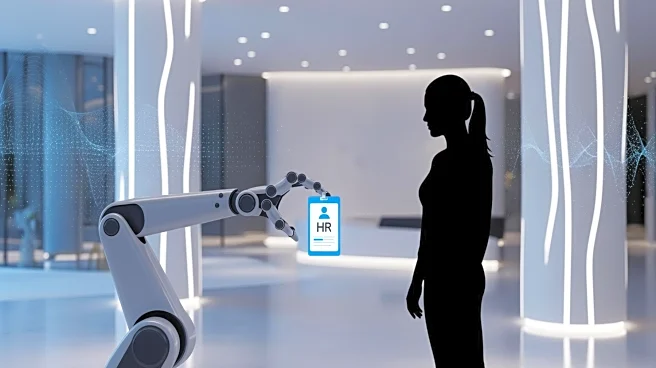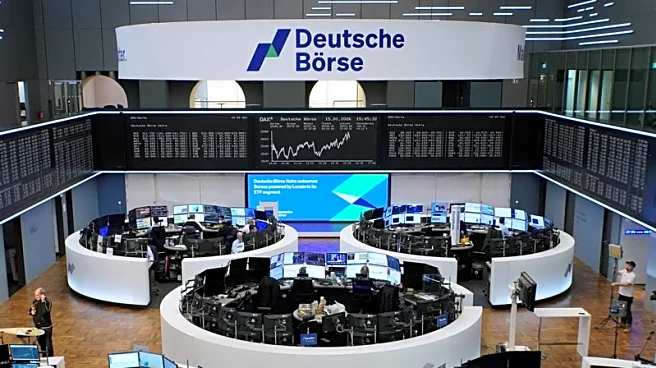What's Happening?
Artificial Intelligence (AI) is increasingly being integrated into human resources (HR) within the hotel industry, aiming to optimize tasks and improve workplace efficiency. According to the Society of
Human Resources Management (SHRM), 40% of U.S. employers are already utilizing AI in recruitment processes. AI tools are being used to handle mundane tasks, allowing HR professionals to focus on more strategic activities. The integration of AI is seen as a way to enhance the human aspect of HR by freeing up time for personalized interactions and strategic planning. Key rules for optimizing AI in HR include making AI part of the culture strategy, pairing AI with human oversight, optimizing AI inquiries with engineered prompts, auditing AI for bias, and ensuring vendors use AI appropriately.
Why It's Important?
The integration of AI in HR is significant as it represents a shift towards more efficient and human-centric workplace practices. By automating routine tasks, AI allows HR professionals to focus on strategic initiatives that can enhance employee satisfaction and organizational culture. This shift is crucial for maintaining competitive advantage in the hospitality industry, where personalized service and employee engagement are key. However, the use of AI also raises concerns about bias and the need for human oversight to ensure ethical practices. Companies that successfully integrate AI into their HR processes can potentially improve recruitment, employee retention, and overall workplace culture.
What's Next?
As AI continues to be integrated into HR practices, companies will need to focus on developing structured approaches to AI use, including prompt engineering and bias auditing. HR leaders will need to ensure transparency in AI applications and maintain human oversight to prevent errors and ethical issues. Additionally, companies will need to engage with vendors to understand how AI is being used in their systems and services. The ongoing evolution of AI technology will likely lead to further innovations in HR practices, requiring continuous adaptation and learning from HR professionals.
Beyond the Headlines
The use of AI in HR not only impacts efficiency but also raises ethical and cultural considerations. Transparency in AI applications is crucial for maintaining trust among employees, and companies must navigate state laws requiring disclosure of AI use. The cultural importance of being open about AI integration can enhance employee engagement and trust. Furthermore, the reliance on AI tools must be balanced with human interaction, especially in industries like hospitality where personal connection is vital. The long-term implications of AI in HR may include shifts in workforce dynamics and the need for new skill sets among HR professionals.











